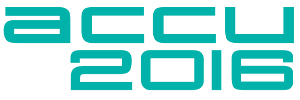New “Italian C++ Conference” event in Italy (Italian only)
A full day of C++ in the Italian language:
Italian C++ Conference 2016
May 14, 2016
University "Bicocca", in Milan.
Special guest: James McNellis, from the Visual C++ Team.
The site and the event are entirely in Italian. Here is a translation of the main information:
In a nutshell
The Italian C++ Conference 2016 aims to be a forum for exchanging experiences using the C++ language, paying special attention to what we learned in the last years using C++11 and C++14, and what to expect from the upcoming C++17.
James McNellis will talk (in English!) about CoRoutines and CRT refactoring.
Other Italian C++ professionals will speak (in Italian) on different topics.
Who should attend the Italian C++ Conference 2016?
This event is made by C++ professionals for C++ professionals, students and enthusiasts.
What can I find in the Italian C++ Conference 2016?
After 5 years of C++11, we'll show the picture of the situation through real stories.
The agenda consists of 5x60' tech talks and 1x40' Q/A "Ask Us Everything" panel.
James McNellis will talk about CoRoutines and about his experience on redesigning the C Runtime (CRT).
Other speakers are Italian C++ professionals, working in different domains. They will cover topics like C++ simplification, REST and Websocket, ideas for teaching modern C++.
Coffee breaks and lunch included.
You can refer to the detailed program for more information.
When does the Italian C++ Conference 2016 take place?
The event will be held on May 14, 2016 at the University "Bicocca", in Milan.
Check-in starts at 8.30 AM, the main event starts at 9.00 AM and will last for a full day.
Who supports this event?
RogueWave Software is our main sponsor.
JetBrains and O'Reilly are supporting us with free books/licenses.
Get in touch if you want to support us!
Do I need to register?
The Italian C++ Conference 2016 is free, but you must register to facilitate the organization of the event. You can register here.


